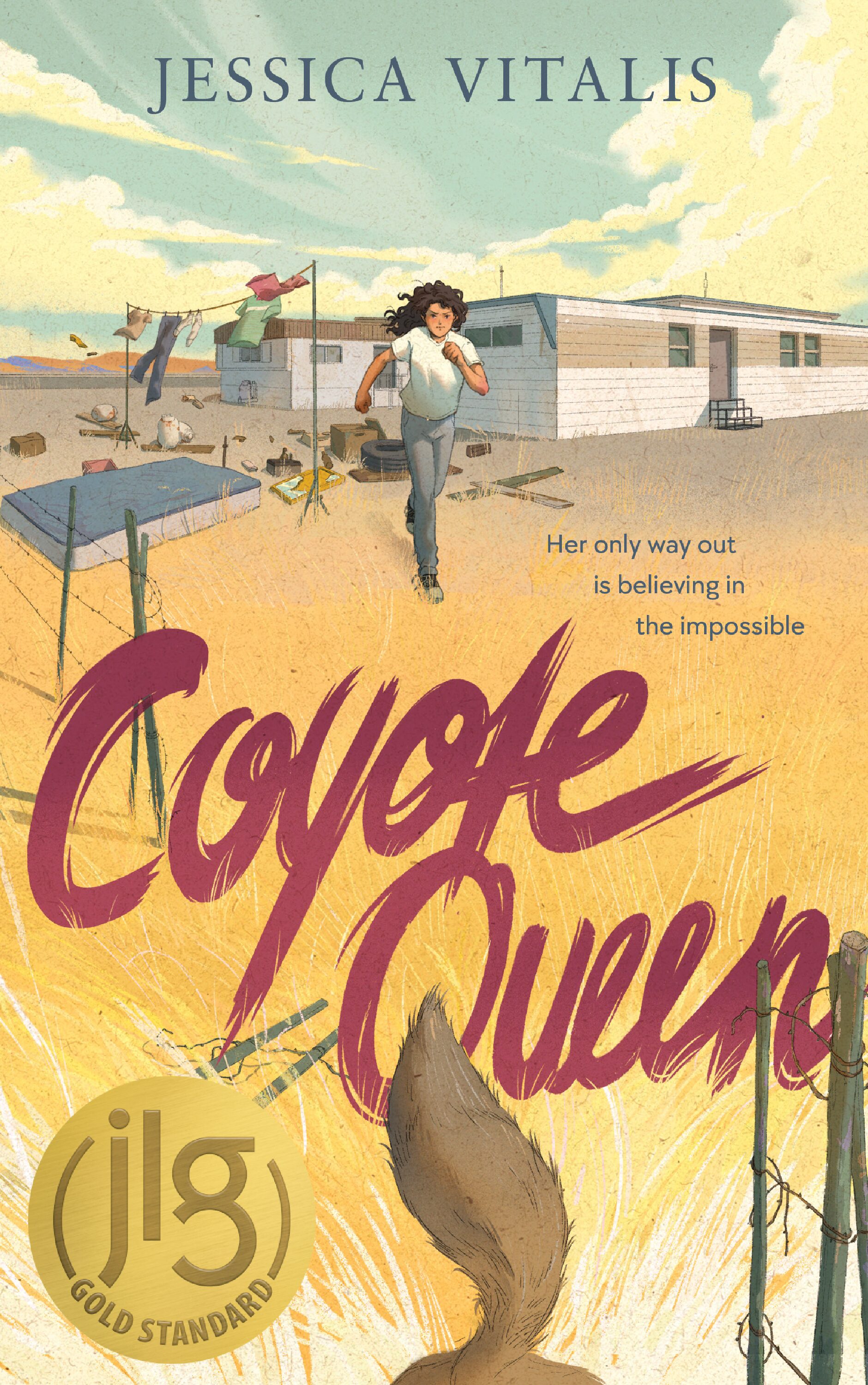The world was no match for Fud and Mom, but that was until Larry showed up. Now it’s his world, his trailer and his rules. One day he comes home with plans to turn a rusted boat into their new home, but Fud wants to save her and her mother from that floating prison. Not Larry’s temper or Mom’s illness, and especially not Fud’s special new abilities that grow stronger by the day. It explores the many challenges a child can face when the world starts to show its true face.
Coyote Queen is Jessica Vitalis’ middle-grade coming-of-age story and is heartwarming for kids of any age. It is a thoughtful exploration of domestic violence and poverty and finding the strength to survive within oneself. It provides children with experiences similar to Fud with an outlet of representation and helps them feel like they are not going through life alone.
While she never joined a beauty pageant or turned into a coyote, Vitalis has lived in a trailer park. Coyote Queen is full of heart and soul that one can only get when an author is writing from their experiences.
Vitalis describes her childhood as being “unusual and colourful,” and is mirrored in Fud’s story. Vitalis moved almost 24 times before reaching grade four.
Vitalis hails from America but now lives in the Waterloo Region where she writes and presents at schools, festivals and conferences across Ontario. She now has an MBA from Columbia University and is on a mission to share entertaining and thought-provoking stories for all ages. Her novels have been translated into three languages and have received many awards.
The novel began as a memoir but developed into a different story.
“I was hungry a lot and I was also scared a lot because there was an adult in my life who did not treat me the way adults should treat kids. I learned that it was easier to be invisible and that it was safer to be invisible,” Vitalis said.
“But I really, really, really wanted to be seen and heard. So as a young adult, I decided that I was going to try to write this memoir to be seen and heard,” she said.
Coyote Queen is a thoughtful exploration of domestic violence and poverty and finding the strength to survive within oneself. It provides children with experiences similar to Fud with an outlet of representation and helps them feel like they are not going through life alone.
“I mean life doesn’t really follow a neat narrative arch. And also, I did not have a chance to pull it off at the time. So, I set the memoir aside, and I started writing fiction,” Vitalis said.
Fud is a very well-developed and compassionately drawn protagonist. Her coyote powers are a clear metaphor for her maturing under stressful circumstances.
The novel is a perfect balance of magic and the real world. Vitalis writes for the Canadian Writer’s union magazine. She recently wrote about guidelines on who should or should not write memoirs.
“My conclusion was that everybody would write a memoir, but maybe not everybody is going to want to publish that memoir. [And] that’s fair,” Vitalis said.
Vitalis takes inspiration from other authors and creators of children’s stories. She enjoys stories meant for younger audiences that still contain emotional depth and is not afraid to explore a wide range of topics. She believes that children should be able to learn about certain themes that may be considered “too adult” as they are still part of the world.
Topics like domestic violence, emotional neglect and poverty are talked about in this book from the perspective of a 12-year-old.
“I checked out a book called Kit’s Wilderness by David Almond. The book is brilliant, it’s really dark and spooky and creepy. It has a lot of emotional depth. I picked [it] up and read and I was just absolutely captivated. So, I wrote a few fictional novels. I didn’t get an agent. And then at some point, I switched to fantasy,” Vitalis said.
Readers young and old will be able to learn about the courage it takes to ask for and receive help when experiencing domestic violence. For younger readers this novel does not pull its punches on some of the realities of being a child. It also helps readers see the main character’s ability to make her situation better.

